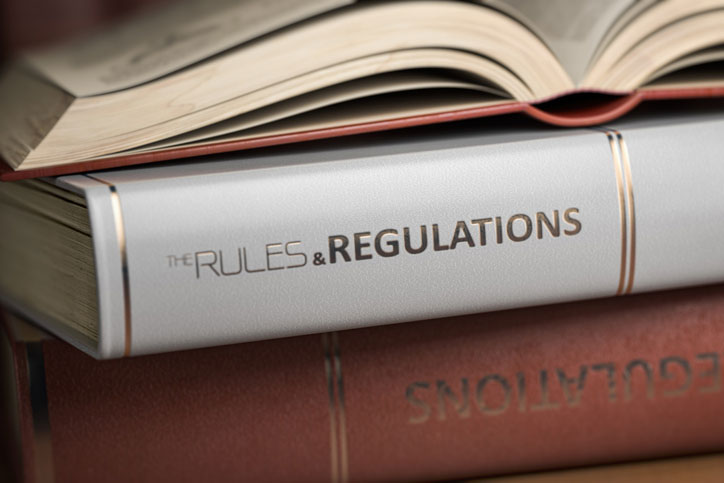Written by Sam Medley

In Illinois, social work licensure is heavily regulated. No one can work under the title of social worker without a state-issued license. But such laws aren’t in place as some bureaucratic scheme. They protect vulnerable people and promote trust, consistency, and accountability in the state’s social service workforce.
If you’d like to become a social worker in Illinois, you have two levels of licensure to consider: Licensed Social Worker (LSW) and Licensed Clinical Social Worker (LCSW). In this guide, we’ll discuss the education and training needed for each.
Who Makes the Rules? An Introduction to the IDFPR
The Illinois Department of Financial and Professional Regulation (IDFPR) is the agency responsible for overseeing social work licensure in the state. Whether you’re applying for social work licensure for the first time or renewing your credentials, you’ll have to go through them.
However, issuing and renewing Illinois social work licenses isn’t their only function. The IDFPR also:
- Investigates complaints against social workers and agencies. They also administer disciplinary actions as needed.
- Approves continuing education providers.
- Administers the state’s social work license reciprocity program.
- Advises legislators about changes to the state’s social work licensure laws.
In addition to overseeing social workers, the IDFPR also regulates licensing for a diverse range of professionals from architects to veterinarians.
Social Work Licensure Requirements for LSWs in Illinois
The Licensed Social Worker credential is Illinois’ most basic license. But that doesn’t mean it’s an entry-level license. As an LSW in Illinois, you can work in every kind of agency and specialty. LSWs can even offer clinical services.

However, LSWs can only conduct clinical social work under the supervision of licensed clinical professionals. Similarly, they can’t work independently or run their own practices.
Education Requirements
You can become an LSW in Illinois by earning either a bachelor of social work (BSW) or Master of Social Work (MSW). But no matter which option you choose, the IDFPR says you must earn your degree from a program that has been accredited by the Council on Social Work Education (CSWE).
What Is the Council on Social Work Education?
The CSWE is a national agency responsible for upholding rigorous academic standards in social work education. To become accredited, schools must follow certain curriculum guidelines, offer fieldwork experiences, and undergo periodic reviews. Earning a degree from a CSWE-accredited school is a social work licensure requirement in most states.
Fieldwork Requirements
If you earned an MSW, you can become an LSW in Illinois without completing any additional fieldwork hours. However, if you have a BSW, the rules are a little different.
According to the Illinois Chapter of the National Association of Social Workers (NASW), BSW holders must complete three years of supervised professional experience. Your supervisor must be an LSW, LCSW, or another licensed professional approved by the IDFPR. This person will document and evaluate your work. Supervisors must meet with supervisors for at least four hours each month.
Exam Requirements
Many states require all licensed social workers to pass an exam before earning their license. However, LSWs in Illinois do not need to pass an exam.
In 2022, state legislators passed Senate Bill 1632, an act that abolished the exam requirement for new LSWs. The Illinois Chapter of the NASW and professionals around the state rallied behind SB1632 in the hopes that it would make a career in social work more accessible to passionate people across the state.
The LSW Application and Fees
After meeting the IDFPR’s education and fieldwork requirements, you’re ready to submit an application for licensure. The LSW application for Illinois can be obtained through the IDFPR website. It typically takes about four to six weeks to process and requires a $50 fee.
On your social work licensure application, you’ll be asked about:
- Education.
- Criminal history and child support payment status (if applicable).
- Social security and tax information.
- Supervised work experience (if you have a BSW).
- Other professional licenses or licenses held in other states.
Keep in mind that you’ll also have to submit supporting documents. For example, you may need transcripts from your social work program and records of any required supervised experience. Sections about these topics also require signatures from school officials and supervisors.
Continuing Education Requirements and Maintaining Your License
LSW licenses expire on November 30 of every odd-numbered year. This means that after your first renewal, you’ll need to renew your license every two years by submitting a renewal application and $60 fee to the IDFPR.
In those two years, you must also acquire 30 continuing education units (CEUs). All continuing education courses must be relevant to social work practice and be completed through an IDFPR-licensed CEU provider including:
- The National Association of Social Workers and all of its chapters including the Illinois Chapter.
- The Association of Social Work Boards.
- The American Association for Marriage and Family Therapy.
- The Illinois Department of Human Services.
- Many of the state’s regionally-accredited colleges and universities.
A number of private companies also offer CEU courses, but it’s important to verify that they’ve been approved by the IDFPR. All CEUs may be earned online, but the IDFPR requires all remote programs to include an exam.
Required CEU Classes and Other Ways to Earn
While all CEU courses must be related to your career, the IDFPR says social workers must take a certain number of classes about specific topics.
Before your social work licensure renewal, you must take:
- Three hours of ethics courses.
- One hour on implicit bias.
- One hour on sexual harassment prevention.
- Any number of hours of mandated reporter training. This must include a section on implicit bias.
- One hour on the treatment, care, and diagnosis of Alzeheimer’s and related diseases.
However, classes aren’t the only way to earn CEUs. You can also maintain your social work license in Illinois by teaching classes at an IDFPR-approved college, writing papers and contributing to publications, preparing presentations, and completing self-study programs through approved CEU providers.
Social Work Licensure Requirements for LCSWs in Illinois
Licensed Clinical Social Workers are the organizational leaders and frontline experts of the social service workforce. They can diagnose and treat mental health conditions, supervise other social workers, and even run their own practices. Because of these advanced duties, Illinois’ LCSW requirements are a little more demanding than requirements for LSWs.
Education Requirements
While you can become an LSW with a BSW, that’s not an option for LCSWs. LCSWs must have either an MSW or a Doctorate-level degree from a CSWE-accredited school of social work.
While the IDFPR doesn’t require LCSW applicants to have completed certain types of classes in their studies, you may want to choose an MSW program that covers clinical techniques. Because seeking this level of social work licensure in Illinois is common, many of the state’s MSW programs offer clinically-focused degree tracks.
Fieldwork Requirements
Because of the demands of being an LCSW, the IDFPR requires potential applicants to have completed supervised fieldwork. LCSW hopefuls who have an MSW must obtain 3,000 hours of supervised clinical experience. Their Doctorate-holding counterparts need 2,000. In both cases, hours must be earned after applicants earn their degrees.

According to the Illinois law that outlines the supervised clinical experience, all hours must be directly related to clinical practice. This includes the assessment, treatment, and prevention of mental and behavioral issues with individuals, groups, and families. Applicants’ supervisors must be LCSWs.
The LCSW Application and Fees
Once you’ve earned your degree and completed your fieldwork hours, you’re eligible to submit an LCSW application in Illinois. Like the LSW application, the application can be submitted to the IDFPR with a $50 fee and takes about four to six weeks to process.
For the most part, the LCSW application is the same as the LSW application. However, you may also need to submit proof that you’ve completed your mandatory supervised hours.
Exam Requirements
After your application has been approved by the IDFPR, you’re not a full-fledged LCSW yet. You must still register for and pass the LCSW exam for Illinois. The exam is administered by the Association of Social Work Boards which is a national alliance made up of state regulatory agencies in all 50 states.
The ASWB’s clinical exam consists of 170 multiple choice questions about four topics:
- Human Development, Diversity, and Behavior in the Environment (24% of exam). In this section, students demonstrate their understanding of basic human needs, the effects of abuse and treatment on individuals and families, person-in-environment theory, and other related topics.
- Assessment, Diagnosis, and Treatment Planning (30% of exam). From evaluating clients’ wellbeing to identifying factors that threaten it, this section tests applicants’ ability to create a comprehensive care plan.
-
Psychotherapy, Clinical Interventions, and Case Management (27% of exam). This section is all about client-practitioner interactions. Questions may cover therapeutic relationships, interviewing techniques, and how to collaborate with other professionals. - Professional Values and Ethics (19% of exam). Because of the delicate nature of clinical social work, the field is fraught with legal and ethical pitfalls. This section determines whether future professionals have the framework for navigating these situations with clients and coworkers as well as in research and policy development.
The time limit for the exam is four hours. The test is administered by computer by PSI Exams which has multiple testing locations across the state. The registration fee is $260 for the clinical exam. Fees, locations, times, and test material are subject to change. Exam prep classes and materials can be purchased through the Illinois Chapter of the NASW and other related organizations.
A New Alternative to the Clinical Exam for LCSWs in Illinois
In January 2024, the IDFPR enacted a new way for applicants to achieve clinical social work licensure in Illinois. After making one attempt at the exam, applicants can choose to complete 3,000 additional hours of supervised professional experience instead of attempting the exam again.
According to a press release from the IDFPR, supervised professional experience includes:
“Social services to individuals, groups or communities in any one or more of the fields of social casework, social group work, community organization for social welfare, social work research, social welfare administration, school social work, or social work education.”
Clinical duties like those all LCSW applicants must complete may also count towards the 3,000-hour requirement. However, some government positions may require job applicants to have completed the exam. Applicants who would like to apply for reciprocity in other states may need to pass the exam, as well.
Illinois LCSW CEU Requirements and Maintaining Your License
Fortunately, LCSWs have the same CEU and license renewal regulations as LSWs. This includes the 30 hour CEU requirement, the two-year renewal cycle, and $60 fee.
Author

Sam is a freelance writer with a passion for learning about any and everything he can. When not reading or writing, he can be found helping his wife tend to the bees, ducks, chickens, and plants that populate their little Kentucky homestead.
View all posts






